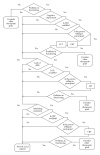The integration of cognitive remediation therapy into the whole psychosocial rehabilitation process: an evidence-based and person-centered approach
- PMID: 22966461
- PMCID: PMC3395151
- DOI: 10.1155/2012/386895
The integration of cognitive remediation therapy into the whole psychosocial rehabilitation process: an evidence-based and person-centered approach
Abstract
Cognitive remediation therapies seem to ameliorate cognitive impairments in patients with schizophrenia. Interestingly, some improvement in daily functioning can also be expected as a result. However, to achieve these results it is necessary that cognitive remediation is carried out in the context of broader psychosocial rehabilitation involving the learning of other communication, social, and self-control skills. Unfortunately, little is known about how to integrate these different rehabilitation tools in broader rehabilitation programs. Based on both the neurocognitive behavioral approach and the action theory framework, a hierarchical flowchart is represented in this paper to integrate CRT with other evidence-based psychological therapies in outpatient settings. Finally, some evidence is provided in which cognitive abilities need to be targeted in remediation programs to improve functioning. In summary, to improve daily functioning, according to these studies, cognitive remediation needs to include the teaching of some cognitive strategies that target executive skills.
Figures



Similar articles
-
[Cognitive remediation and cognitive assistive technologies in schizophrenia].Encephale. 2009 Apr;35(2):160-7. doi: 10.1016/j.encep.2008.02.010. Epub 2008 Jun 2. Encephale. 2009. PMID: 19393385 French.
-
[Preventing violence in schizophrenia with cognitive remediation].Encephale. 2018 Apr;44(2):158-167. doi: 10.1016/j.encep.2017.05.001. Epub 2017 Jun 20. Encephale. 2018. PMID: 28641817 Review. French.
-
[Learning potential and cognitive remediation in schizophrenia].Encephale. 2009 Sep;35(4):353-60. doi: 10.1016/j.encep.2008.06.014. Epub 2009 Jan 8. Encephale. 2009. PMID: 19748372 Review. French.
-
[The cognitive paradigm in the rehabilitation of schizophrenia - focusing on cognitive remediation].Neuropsychopharmacol Hung. 2015 Sep;17(3):129-40. Neuropsychopharmacol Hung. 2015. PMID: 26485743 Review. Hungarian.
-
Efficacy of cognitive rehabilitation using computer software with individuals living with schizophrenia: A randomized controlled trial in Japan.Psychiatr Rehabil J. 2017 Mar;40(1):4-11. doi: 10.1037/prj0000232. Epub 2017 Feb 9. Psychiatr Rehabil J. 2017. PMID: 28182471 Clinical Trial.
Cited by
-
Efficacy of cognitive rehabilitation on psychosocial functioning in Borderline Personality Disorder: a randomized controlled trial.BMC Psychiatry. 2015 Oct 21;15:255. doi: 10.1186/s12888-015-0640-5. BMC Psychiatry. 2015. PMID: 26487284 Free PMC article. Clinical Trial.
-
Cognitive Reserve Assessment Scale in Health (CRASH): Its Validity and Reliability.J Clin Med. 2019 Apr 28;8(5):586. doi: 10.3390/jcm8050586. J Clin Med. 2019. PMID: 31035381 Free PMC article.
-
Testing the efficacy of INtegral Cognitive REMediation (INCREM) in major depressive disorder: study protocol for a randomized clinical trial.BMC Psychiatry. 2019 May 6;19(1):135. doi: 10.1186/s12888-019-2117-4. BMC Psychiatry. 2019. PMID: 31060604 Free PMC article. Clinical Trial.
References
-
- Wykes T, Reeder C, Corner J, Williams C, Everitt B. The effects of neurocognitive remediation on executive processing in patients with schizophrenia. Schizophrenia Bulletin. 1999;25(2):291–307. - PubMed
-
- Bell M, Bryson G, Greig T, Corcoran C, Wexler BE. Neurocognitive enhancement therapy with work therapy: effects on neuropsychological test performance. Archives of General Psychiatry. 2001;58(8):763–768. - PubMed
-
- Van der Gaag M, Kern RS, Van den Bosch RJ, Liberman RP. A controlled trial of cognitive remediation in schizophrenia. Schizophrenia Bulletin. 2002;28(1):167–176. - PubMed
-
- Spaulding WD, Reed D, Sullivan M, Richardson C, Weiler M. Effects of cognitive treatment in psychiatric rehabilitation. Schizophrenia Bulletin. 1999;25(4):657–676. - PubMed
LinkOut - more resources
Full Text Sources
Research Materials

